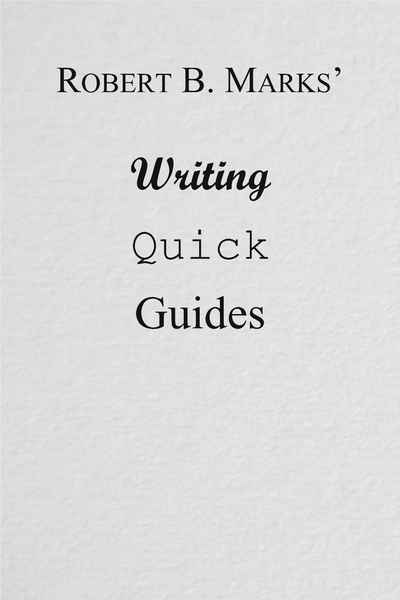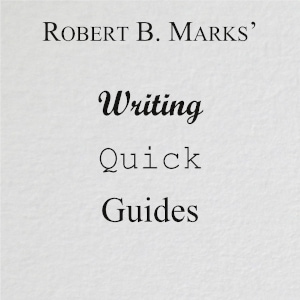So, let's get into the nitty-gritty of how to use environmental storytelling to create an emotional impact on the reader.
Subverting expectations gets a rather bad reputation these days, and for understandable reasons. Some truly bad and offensive storytelling decisions in major media properties have been justified with this excuse (see the treatment of Luke Skywalker in The Last Jedi as a prime example). But, it is a critical part of good storytelling, and when done properly it can elevate your story from good to great.
But, to understand how to subvert expectations, we first need to look at what expectations are and how they are formed.
Every reader understands the language of story. We are steeped in storytelling from the time we learned how to speak. Even the most elemental of preschool children's television (which, as the father of a 4 year-old girl, I have watched quite a lot of in the last two years) is grounded in storytelling. As such, the minute a story starts, we have expectations for it.
The example Robert McKee gives in his book Story is the classic movie Jaws, and it is a perfect example. The beginning of the film establishes that a shark is eating swimmers, and that the protagonist is a sheriff. The audience now expects that the sheriff will confront the shark. Consider other movies, and you get the same thing: in Star Wars the protagonist is Luke Skywalker and the main villain is Darth Vader, so we expect that by the end of the movie, the two will fight in some manner (and they do); in any given James Bond movie, the moment the villain is established, we expect that Bond will confront and kill him. If these expectations are not met, the audience will feel unfulfilled and leave the story disappointed (imagine for a moment if in Jaws the sheriff stayed ashore instead of hunting the shark, or in the Death Star trench run sequence Darth Vader had been off running an errand instead of joining the fight) - readers do not like a bait-and-switch.
As storytellers, we have an obligation to meet these expectations - this is part of the unspoken contract we forge with the reader when they start reading our book. What we do not have is any obligation on how to get there. It is in this space that most expectations are to be subverted. Or, to paraphrase Robert McKee, great storytelling is giving the reader what they want, but not in the way they expected it. However, there is a caveat: if you are going to take the reader along a different road to the expected endpoint, that road has to be worth the journey in the first place.
Let's take a look at two great examples that have stood the test of time: J.R.R. Tolkien's novel The Lord of the Rings, and the Peter Jackson adaptation of The Two Towers. In Jackson's film, the hobbits Merry and Pippin attempt to recruit the Ents to attack the secondary villain Saruman. In the novel, this involves a meeting of the Ents, after which they agree to help Merry and Pippin. The viewer who has read the book therefore has expectations on how this scene will play out and where it will lead - except that when the time comes, the Ents refuse to help, forcing Merry and Pippin to come up with a way to force their hand (which they do). The main expectation is that the Ents will attack Saruman, and this is met, but the expected manner in which it will play out is subverted in a manner that is ultimately satisfying.
Likewise, the start of Tolkien's novel establishes that the protagonist is Frodo Baggins, and the villain is the dark lord Sauron. The reader thus has an expectation that Frodo will have to confront and overcome Sauron (just like the sheriff and the shark in Jaws). However, Sauron never appears in person in the book. This is not a problem, however, as the One Ring is established to be a stand-in for Sauron and the actual primary antagonist of the story, creating a situation where Frodo's confrontation with Sauron begins the moment he inherits the Ring. The reader expects a confrontation against Sauron to take place at the climax of the story, and Tolkien instead provides a running confrontation that takes place throughout the entire book.
If we look at why The Last Jedi fails to subvert expectations in the sort of satisfying way as The Lord of the Rings, what we see is poor execution. The viewer expects Luke Skywalker to enter the fight. The film having him start out as a reclusive hermit is a legitimate storytelling decision and a restarting of his hero's journey (and, in fact, based on what was leaked out of George Lucas' plan for a sequel trilogy, was where Lucas thought Luke should start the story). And yet, it is an ultimately unsatisfying journey - the movie doesn't just provide us with a Luke Skywalker whose doubts have led him to reject the Jedi (a proper subversion), it gives us a full character derailment so over-the-top that it feels forced and unnatural. The road to Luke joining the fight is different than expected, but it's also not worth the journey.
Now, while I have concentrated on subversions inside the narrative on the road to the expected endpoint, the endpoint can be subverted as well. What is important to note here is that you still have to give the reader what they want - the trick is to figure out what they don't realize that they want. For example, in The Empire Strikes Back, the viewer wants to see Luke Skywalker fight Darth Vader - what they didn't know they wanted was to discover that Vader is Luke's father, adding new context to the conflict. The trick to succeeding here is that when you perform a substitution, what you put in the expected conclusion's place must be better and more satisfying to the reader than the original expectation - it must be something they would have expected if they knew it was an option. If, for example, at the end of Jaws the sheriff gets eaten by the shark, which then goes on its merry way, nobody would be satisfied with the movie.
Summing up: when you write, consider what expectations you are creating in the reader's mind. What road are they expecting you to take there? And is this expected endpoint what they really want, or is there something much better that they don't know that they want, and would expect if they knew it was a possibility? Once you can answer these questions, you can use subversion of expectations to elevate your story to the next level.











Comments (0)
See all